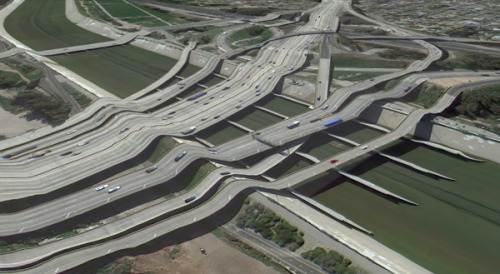
WTF


A project by Clement Valla:
At first, I thought they were glitches, or errors in the algorithm, but looking closer, I realized the situation was actually more interesting — these images are not glitches. They are the absolute logical result of the system. They are an edge condition—an anomaly within the system, a nonstandard, an outlier, even, but not an error. These jarring moments expose how Google Earth works, focusing our attention on the software. They are seams which reveal a new model of seeing and of representing our world - as dynamic, ever-changing data from a myriad of different sources – endlessly combined, constantly updated, creating a seamless illusion.
One thing you seem to have got scarily accurate is the way advertising is weaved into the world around. Is that something that you foresaw coming, or just a good, estimated guess?
Well, you know it was actually a direct result of our process. The thing that triggered it was that Spielberg wanted, not to make a science fiction film, but a film about a future reality. And what that meant for us that we did a whole other kind of research.
It was really important that we could say, to the best of our knowledge, this is a pretty fair guess at what will happen. More than a guess. A well informed decision based on research that just having Spielberg at the helm gave us access to. Technology departments, CEOs in big corporations who were able to say confidently to us that touchpad technology was going to be big in the future because they were developing it.
”